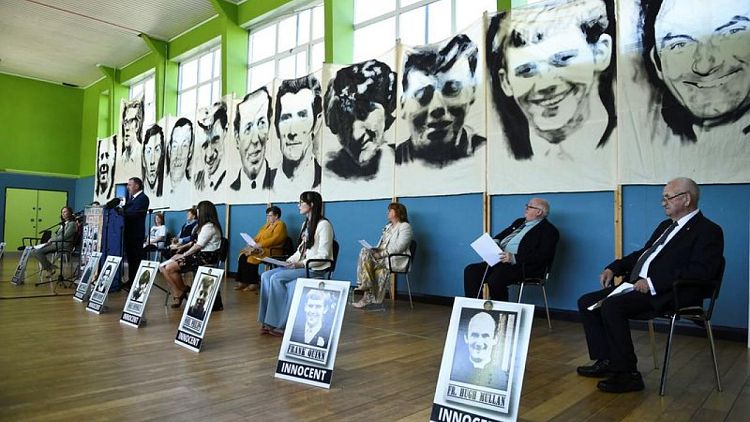By Andrew MacAskill
LONDON - The British government pushed ahead with plans to offer an amnesty to former soldiers and individuals involved in decades of sectarian violence in Northern Ireland as victims say the new law will deprive them of justice.
Unresolved crimes from Northern Ireland's three decades of confrontation between Irish nationalist militants, pro-British "loyalist" paramilitaries and the British military that killed around 3,600 people remain a contentious issue more than two decades after a peace deal was struck.
Lawmakers in Britain's parliament for the first time on Tuesday discussed the proposed new law, which would create a committee offering immunity to anyone who cooperates with investigations to help families find out what happened in hundreds of unsolved murders.
The government has said any individual who genuinely cooperates with the inquiries will be granted immunity. If individuals do not cooperate, they could still be prosecuted.
Relatives of the victims angrily rejected what they said would result in an amnesty for killers and rapists. Protesters wearing white masks carried a coffin bearing the word "justice" outside parliament as lawmakers debated the law.
Christine Duffy, 52, whose 15-year-old brother was killed when a plastic bullet hit his heart in north Belfast in 1989, said the new law would deprive her of her hopes that his killer would one day stand trial.
"Murder is murder and anyone who commits it should be held accountable," she said outside parliament. "My brother is entitled to justice and this law means he will never get it."
Introducing the new law, Northern Ireland minister Brandon Lewis said the legislation will put information recovery "at its core" as prosecutions linked to the violence are increasingly unlikely to result in convictions.
Britain's plans have been consistently opposed by Northern Ireland's main Irish nationalist and pro-British unionist parties, victims' groups and the Irish government.
Irish foreign minister Simon Coveney said Dublin had serious concerns and could not support the bill. Sinn Fein leader Mary Lou McDonald, whose party won the most seats in Northern Irish elections last month, told Reuters the provisions affording an amnesty to British soldiers "would make a despot blush."


